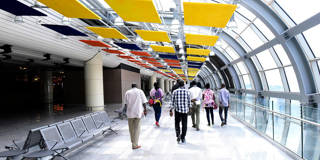Asset-based and risk-sharing instruments – the backbone of Islamic finance – ensure that financiers become stakeholders in a project’s success. A hybrid financing model that makes use of both conventional and Islamic finance could accelerate investment in sustainable infrastructure in developing countries.
JEDDAH – Today’s world is confronting a host of complex development challenges, from climate change and rapid urbanization to widening inequality, debt sustainability, and a persistent digital divide. But, as the COVID-19 pandemic made plain, many developing countries lack the sustainable and resilient social-sector infrastructure required to address such complex and overlapping crises. More worryingly, these countries – particularly the least-developed among them – are unable to close their infrastructure gaps, owing to shrinking fiscal space, heavy debt burdens, and inadequate levels of official development aid.

JEDDAH – Today’s world is confronting a host of complex development challenges, from climate change and rapid urbanization to widening inequality, debt sustainability, and a persistent digital divide. But, as the COVID-19 pandemic made plain, many developing countries lack the sustainable and resilient social-sector infrastructure required to address such complex and overlapping crises. More worryingly, these countries – particularly the least-developed among them – are unable to close their infrastructure gaps, owing to shrinking fiscal space, heavy debt burdens, and inadequate levels of official development aid.